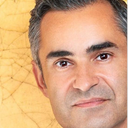How Can I Tell if I Have Thick or Thin Nasal Skin?
Hello, I am wondering how to tell if I have thick or thin nasal skin. I am blonde with very fair skin; however, my skin does tend to be oily and I do have some visible pores on my nose. Does this mean I likely have thick nasal skin and will this interfere with rhinoplasty? Thank you







